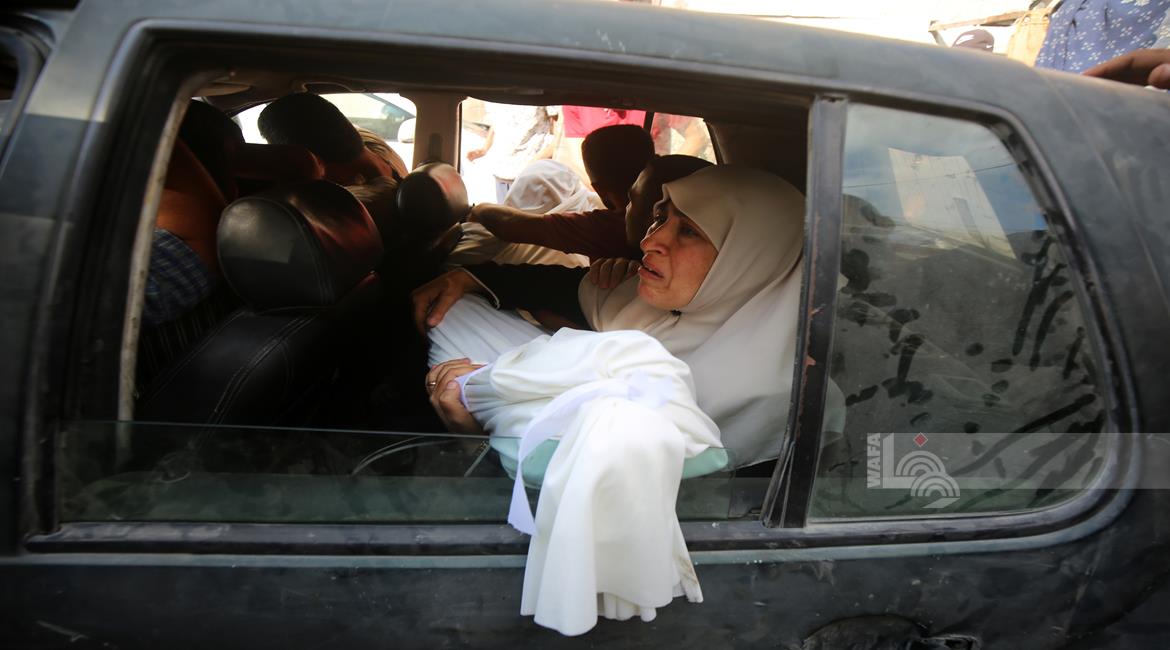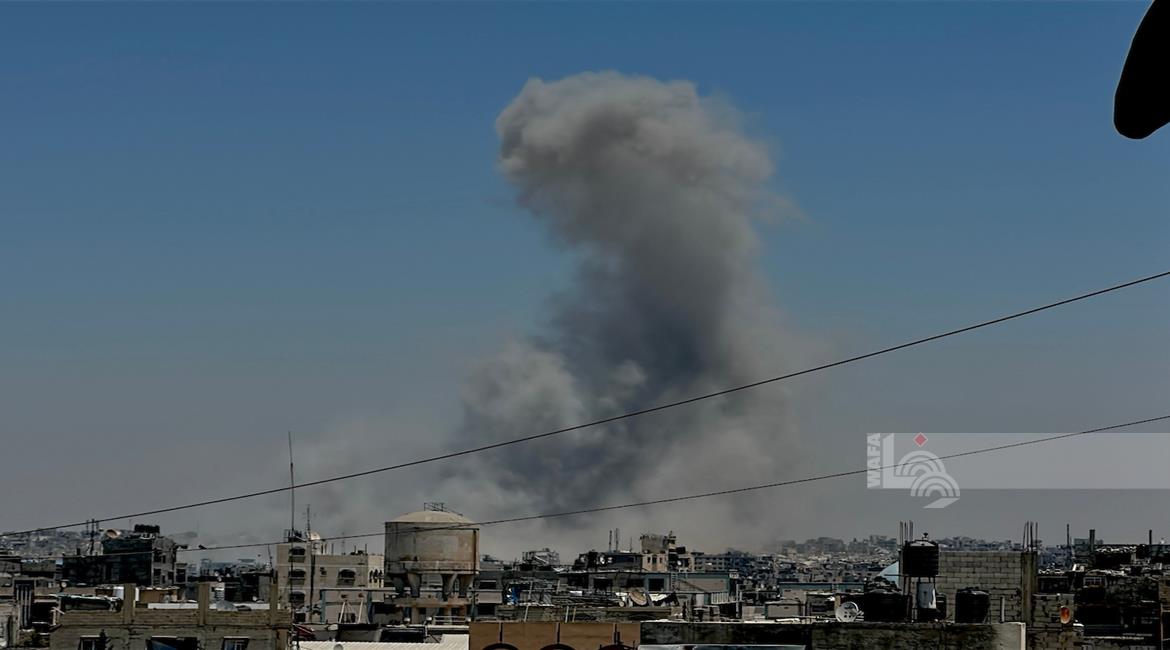Important News
- Israeli forces demolish two-story home, industrial facility in Rafat near Salfit
-

- Israeli colonists assault Palestinian woman in Masafer Yatta; army detains five in Hebron raids
-

- Israeli forces raze Palestinian land in Bethlehem-area-town to build new colonial road
-

- Senegalese PM affirms Palestine support during delegation meeting
-

- Colonists destroy water pipeline supplying six villages south of Nablus
-

- Occupation forces storm neighborhood Jenin, raid home
-

- Weather: Very hot conditions, rise in temperature
-

- Palestinian man killed by Israeli forces near Jenin
-

Tutu: Beit Hanoun Investigative Mission could Could not Take Place on Time for Israel's Lack of Cooperation
GENEVA, December 11, 2006 (WAFA) - Archbishop Desmond Tutu, in his capacity as Head of the Fact-Finding Mission to Beit Hanoun, said Monday that the investigative mission into the events in Beit Hanoun could not take place as scheduled owing to the lack of cooperation by the Israeli Government.
"The events leading up to the shelling at Beit Hanoun are documented and the basic facts are not in dispute," Archbishop Tutu told press conference held at the Palais des Nations in Geneva. "The broader context, however. is complex, and this warranted that we also visit Israel, where in the pursuit of our mandate we had hoped for meetings with members of the Government at a high level. For this reason we resisted suggestions from some that we enter Gaza via Egypt as this would have precluded the opportunity for discussions with Israeli officials and organisations."
"We are pleased to note that the fragile Gaza ceasefire agreement brokered on 26 November has held for a second week, and note with appreciation that the Israeli Defense Force did not retaliate when nine homemade rockets were fired towards southern Israel during this time."
The lack of Israeli cooperation in this context was "very distressing" Archbishop Tutus said. "This is a time in our history that neither allows for indifference to the plight of those suffering, nor a refusal to search for a solution to the present crisis in the region," he observed.
Archbishop Tutu had come to Geneva on 1 December, and Professor Chinkin on 7 December, and they had waited all of this time hoping that the Israeli Government would take a decision. They had to leave on Sunday in order to be able to fulfill the mandate of the Council to report back to it by the middle of the month. That would have left 5 days, which was short, but "better than nothing". However, "even if the Israeli government were to issue visas today", owing to arrangements including for security personnel, "Wednesday would be the earliest we could have gone, leaving only two days for the mission, which was unacceptably short", Archbishop Tutu said.
Professor Chinkin then added the sense of frustration they had felt. They had been committed to carrying out the mandate of the Council and to talk with all involved, including Israeli civil society groups and individuals, to ensure the mission was not one-sided.
Archbishop Tutu and Professor Chinkin then responded to questions from journalists.
On the exact events, Archbishop Tutu said that when there was no quick action on their visas, he had made it clear to the Israelis that they could not wait in limbo indefinitely.
"If we do not hear one way or the other by 4 o'clock on Friday", Archbishop Tutu told the Israeli Ambassador, "We will take it that the visas have been refused." They had heard nothing further from the Israelis up to the present moment. The Israelis said that the decision had not yet been made, and Archbishop Tutu observed, "Sometimes not making a decision is making a decision".
Responding to a suggestion that perhaps the mission could be undertaken at a later date, Archbishop Tutu said that "that would depend on the availability of the personnel. We aren't actually looking for jobs. I came here having left my wife in hospital".
Archbishop Tutu believed then and still believed now that this could have been a significant mission in facilitating negotiations between both sides.
Archbishop Tutu, explaining his hopes, said "We [felt] we would be able, through a direct engagement with all sides, to make suggestions and recommendations which we hoped would begin to move the logjam. ... Its human beings being in touch with one another and you can't predict ahead of time when that kind of engagement will occur. We did not believe we were going on a hopeless quest."
Archbishop Tutu and Professor Chinkin declined to parse the meaning of the Israeli Government in not granting the visas. He had sent a report to the President of the Human Rights Council based on what had happened, and it was up to the President and the Council to decide where to go from now.
A.D (21:20P) (19:20GMT)










